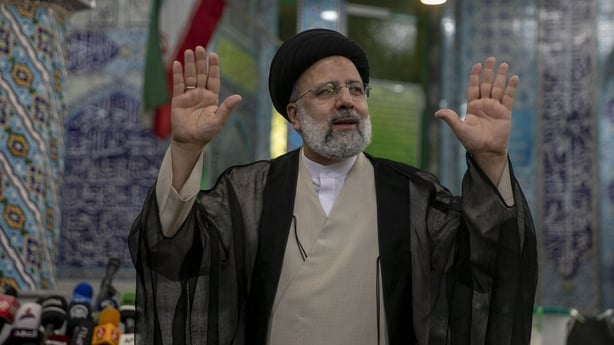Iran To Announce Result Of Presidential Race
Iranians have voted in a presidential election in which ultraconservative cleric Ebrahim Raisi is seen as all but certain to coast to victory after all serious rivals were barred from running.
After a lacklustre campaign, low turnout was expected in a country exhausted by a punishing regime of US economic sanctions that has dashed the hopes of many for a brighter future.
The supreme leader, Ayatollah Ali Khamenei, cast the first vote in Tehran and then urged Iran’s nearly 60 million eligible voters to follow suit before polls closed.

“The sooner you perform this task and duty, the better,” said the 81-year-old, stressing that voting “serves to build the future” of the Iranian people.
Judiciary chief Ebrahim Raisi is seen as the race’s favourite over a lack of real competition, but Iran’s presidential elections have regularly led to surprises since 1997.

Enthusiasm has been dampened further by the economic malaise of spiralling inflation and job losses, deepened by the Covid-19 pandemic.
Iranian opposition groups abroad and some dissidents at home have urged a boycott of the vote they see as an engineered victory for Mr Raisi, the 60-year-old head of the judiciary, to cement ultraconservative control.
But many queued to vote at schools, mosques and community centres.
Many said they supported Mr Raisi, who has promised an anti-corruption drive, help for the poor, and millions of flats for low-income families.
Ultimate political power in Iran, since its 1979 revolution toppled the US-backed monarchy, rests with the supreme leader.
But the president, as head of the executive branch of the government, also wields significant influence in fields from industrial policy to foreign affairs.
The election winner will take over in August from President Hassan Rouhani, a moderate who has served the maximum two consecutive four-year-terms allowed under the constitution.
Mr Rouhani’s landmark achievement was the 2015 deal with world powers under which Iran agreed to limit its nuclear programme in return for sanctions relief.
But high hopes for greater prosperity were crushed in 2018 when then-US president Donald Trump withdrew from the accord and launched an economic and diplomatic “maximum pressure” campaign against Iran.
As old and new US sanctions hit Iran, trade dried up and foreign companies bolted. The economy nosedived and spiralling prices fuelled repeated bouts of social unrest which were put down by security forces.
Source – https://www.rte.ie/news/2021/0619/1229070-iran-election/











